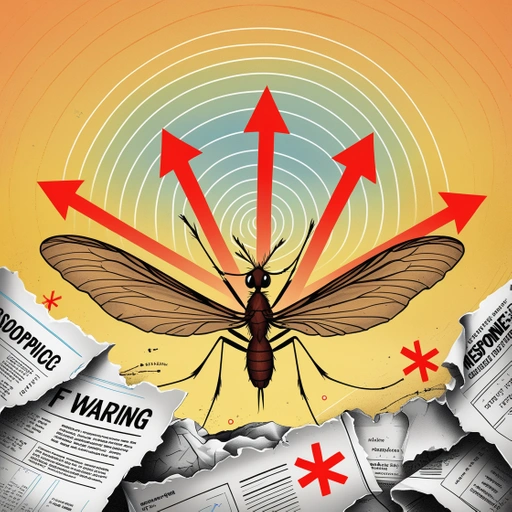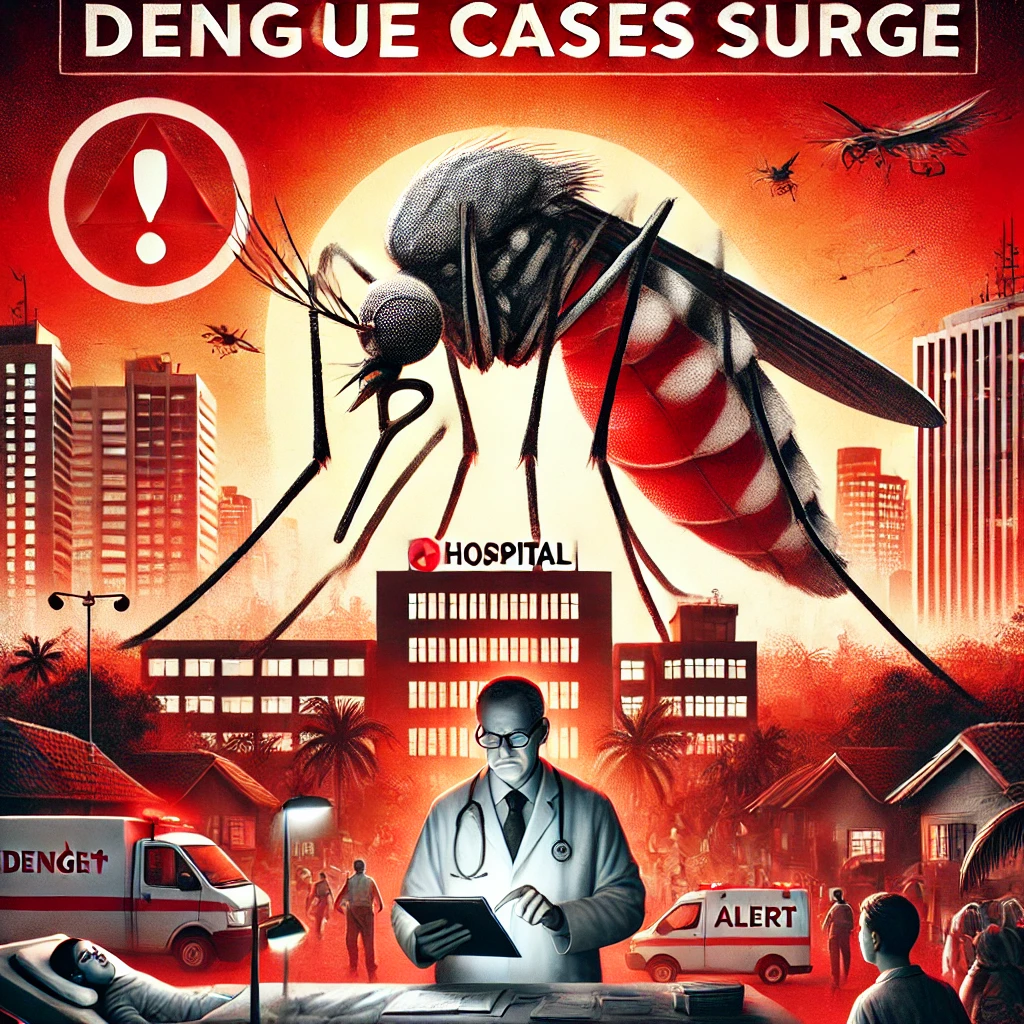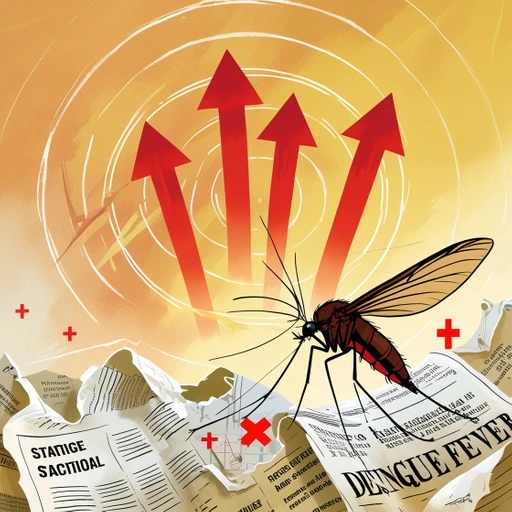
Dengue fever, a mosquito-borne viral disease, has seen a dramatic surge in cases worldwide, setting off alarm bells among health authorities and the general public. The disease, primarily transmitted by the Aedes aegypti mosquito, has become a significant public health concern, particularly in tropical and subtropical regions. As cases continue to rise, understanding the causes, symptoms, prevention measures, and impact of dengue is crucial to mitigating its spread and reducing fatalities.
The Concerning Increase in Dengue Cases
The prevalence of dengue fever has increased dramatically in recent years, with several nations reporting record-breaking case counts. According to estimates from the World Health Organization (WHO), there are roughly 390 million dengue infections every year, of which 96 million result in clinical symptoms. This rise is caused by a number of factors, such as increased worldwide travel, poor waste management, fast urbanization, and climate change.
The spread of dengue has been significantly influenced by climate change. Mosquitoes can multiply in previously untouched areas due to the perfect breeding circumstances created by rising temperatures and changed rainfall patterns. Furthermore, stagnant water has accumulated in sewers, waste dumps, and building sites as a result of urbanization, creating ideal breeding grounds for Aedes mosquitoes.

\Symptoms and Complications of Dengue
The symptoms of dengue fever can range widely, from a mild flu-like disease to serious and often fatal consequences. High fever, excruciating headaches, joint and muscle discomfort, nausea, vomiting, skin rashes, and bleeding tendencies are typical symptoms. The illness develops in three stages:
High fever, excruciating body aches, headaches, and skin rashes are the hallmarks of the febrile phase.
Critical Phase: Dengue hemorrhagic fever (DHF) or dengue shock syndrome (DSS) may result from complications that some patients experience, including internal bleeding, plasma leakage, and organ dysfunction.
Phase of Recovery: Patients progressively regain their strength, but if appropriate care is not given, problems may still occur.
Because severe dengue can cause multiple organ failure, shock, and even death, it is imperative that patients receive medical assistance right away. People with weakened immune systems, the elderly, and children are more susceptible to serious consequences.

The Economic and Social Impact of Dengue
Healthcare systems are under a lot of strain due to the growing number of dengue infections, particularly in poor nations with inadequate medical resources. Overcrowding in hospitals and clinics results in a shortage of medical staff, beds, and supplies. Vector control, public health initiatives, and emergency medical care need significant financial outlays from governments, taking monies away from other vital sectors.
Dengue epidemics cause disruptions to daily life in addition to the financial impact. As people get sick, absenteeism occurs in both companies and schools. Communities become more fearful and anxious, which has an impact on people’s general wellbeing. Furthermore, in some areas, the stigma attached to dengue can result in social exclusion and prejudice against those who are afflicted.
Measures for Prevention and Control
A multifaceted strategy involving individuals, communities, and governments is needed to prevent dengue. Among the successful tactics are:
Removal of Mosquito Breeding Areas:
Empty and clean flowerpots, birdbaths, and water containers on a regular basis.
Make sure to properly dispose of rubbish to avoid water buildup in disposed goods.
In areas with standing water where mosquitoes breed, apply larvicides.
Individual Defense:
Use insect repellents and dress in long sleeves.
Put in mosquito screens for doors and windows.
Particularly in high-risk areas, sleep behind mosquito nets.
Community and Government Initiatives:
Run initiatives to educate the public about preventing dengue.
In affected locations, put fogging and spraying programs into action.
bolster the healthcare system to effectively manage outbreaks.

The Function of Immunization
One important stage in the fight against dengue is the creation of vaccinations. Currently, certain nations have authorized vaccines that provide protection against severe dengue, such as Dengvaxia and Qdenga. However, since they are only advised for people who have previously been exposed to dengue, their use needs to be carefully considered. The goal of ongoing research is to create vaccinations that are more broadly protective and more universally effective.
Conclusion
The increasing number of dengue fever cases is a clear indication that preventive measures are desperately needed. The worrying rise in diseases is a result of urbanization, climate change, and insufficient mosquito control. To put into practice efficient preventative measures, enhance healthcare systems, and support immunization campaigns, governments, communities, and individuals must work together. Numerous lives can be saved by preventing the spread of dengue and increasing awareness. A concerted and persistent effort is still necessary to control dengue and protect public health as the world fights this escalating danger.


